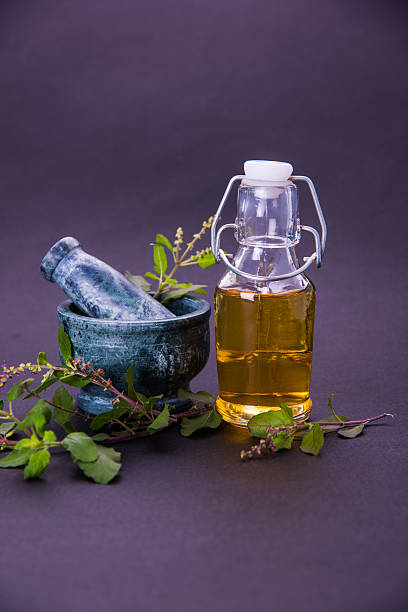
Ayurvedic Pain Relief: Herbal Solutions for Joint and Muscle Recovery
Share
Ayurvedic Solutions for Muscle Pain and Joint Stiffness: The Power of Guggul, Boswellia, and Turmeric
Muscle pain and joint stiffness are common issues that can significantly hinder daily activities and quality of life. Whether caused by strenuous physical activity, aging, or chronic conditions like arthritis, these discomforts can be persistent and debilitating. Modern pain relief solutions often rely on synthetic medications that come with side effects or risks of dependency. Ayurveda, an ancient holistic healing system, offers natural, long-lasting alternatives through powerful anti-inflammatory herbs like Guggul, Boswellia, and Turmeric.
In this blog, we’ll explore how these Ayurvedic herbs work to relieve muscle and joint pain and stiffness. Additionally, we’ll cover practical ways to incorporate them into your daily routine through oils, supplements, and balms. We’ll also dive into the role of Ayurvedic massage techniques and yoga in promoting joint flexibility and reducing pain.
Understanding Muscle Pain and Joint Stiffness
Before delving into Ayurvedic remedies, it’s important to understand the causes of muscle pain and joint stiffness. Muscle pain, also known as myalgia, can result from a variety of factors such as:
- Overexertion during physical activities like weightlifting or running
- Injuries like sprains and strains
- Chronic health conditions such as fibromyalgia or myositis
- Posture-related issues caused by long hours of sitting or improper lifting
Joint stiffness, on the other hand, often arises from:
- Osteoarthritis or rheumatoid arthritis, which cause inflammation and damage to joint tissues
- Aging, leading to reduced flexibility and mobility
- Injuries to ligaments or tendons surrounding the joint
- Lack of physical movement, causing stiffness due to the buildup of inflammatory markers
Both muscle pain and joint stiffness are typically associated with inflammation in the body. This is where Ayurvedic anti-inflammatory herbs come into play.
Ayurvedic Herbs for Muscle and Joint Pain Relief
Ayurveda offers several potent herbs that address the root cause of inflammation and provide relief from pain and stiffness. The most widely recognized herbs include Guggul, Boswellia, and Turmeric.
1. Guggul (Commiphora Mukul): The Natural Anti-inflammatory
Guggul, derived from the resin of the Mukul tree, is one of the most potent anti-inflammatory herbs in Ayurveda. It has been used for centuries to treat joint pain, arthritis, and muscle inflammation.
- How Guggul Works: Guggul contains a powerful compound known as guggulsterone, which has anti-inflammatory and antioxidant properties. This compound helps reduce pain and swelling in the joints and muscles by inhibiting the production of pro-inflammatory cytokines.
-
Forms of Guggul:
- Guggul Supplements: Guggul is available in capsule form and can be taken daily to reduce inflammation and promote muscle recovery.
- Guggul Oil: For topical relief, Guggul oil can be massaged into the affected area to soothe pain and improve joint mobility.
2. Boswellia (Boswellia Serrata): The Joint Protector
Boswellia, also known as Indian frankincense, is another powerful anti-inflammatory herb frequently used in Ayurveda to manage joint stiffness and pain. It is particularly effective in treating conditions like arthritis.
- How Boswellia Works: Boswellia contains active compounds called boswellic acids, which block the formation of leukotrienes, chemicals responsible for inflammation in the joints. Studies have shown that Boswellia helps reduce pain, improve mobility, and prevent the degradation of cartilage in arthritis patients.
-
Forms of Boswellia:
- Boswellia Capsules: You can consume Boswellia in the form of capsules or tablets for long-term joint health.
- Boswellia Balm: Boswellia balms can be applied directly to the joints for instant relief from stiffness and discomfort.
3. Turmeric (Curcuma Longa): The Golden Healer
Turmeric is a widely known superfood that has remarkable anti-inflammatory and antioxidant properties. The active compound in turmeric, curcumin, is responsible for its healing properties and is used extensively in both Ayurveda and modern medicine to manage pain and inflammation.
- How Turmeric Works: Curcumin works by blocking the inflammatory pathway at the molecular level, inhibiting the production of inflammatory markers such as TNF-α and interleukin-6. It also neutralizes free radicals that contribute to oxidative stress, further reducing pain and inflammation.
-
Forms of Turmeric:
- Turmeric Tea: You can prepare a simple turmeric tea by boiling turmeric powder in water and adding honey and black pepper to enhance curcumin absorption.
- Turmeric Oil: Turmeric-infused oil can be used for topical massages to relieve muscle and joint pain.
- Turmeric Supplements: For a more concentrated dose, turmeric capsules can be taken daily to keep inflammation in check.
Incorporating Ayurvedic Herbs into Your Routine
Here are some practical ways to use Guggul, Boswellia, and Turmeric in your daily life for muscle and joint pain relief:
1. Herbal Oils and Balms for Massage
Ayurvedic massage, also known as Abhyanga, is a key element in managing muscle and joint stiffness. Massaging the affected areas with herbal oils helps improve blood circulation, reduce inflammation, and promote relaxation.
-
How to Prepare an Ayurvedic Massage Oil:
- Mix Guggul oil, Boswellia oil, and turmeric oil in equal proportions.
- Warm the oil mixture slightly before applying it to the affected area.
- Massage the area using circular motions for 10-15 minutes.
- Let the oil absorb into the skin for at least 30 minutes before rinsing with warm water.
Regular massage with these oils can help reduce stiffness, improve flexibility, and relieve muscle tension.
2. Herbal Teas and Decoctions
Herbal teas and decoctions are a simple way to integrate these powerful anti-inflammatory herbs into your daily routine.
-
Turmeric Tea:
- Mix 1 teaspoon of turmeric powder with 1 cup of water.
- Add a pinch of black pepper to enhance curcumin absorption.
- Simmer for 10 minutes, strain, and drink once or twice a day.
-
Boswellia Decoction:
- Boil Boswellia resin in water for 15-20 minutes.
- Strain and drink this decoction twice a day to improve joint mobility and reduce inflammation.
Ayurvedic Lifestyle Tips for Muscle Recovery and Joint Health
In addition to herbs, Ayurveda recommends several lifestyle practices to maintain joint mobility and reduce muscle pain.
1. Yoga for Flexibility and Strength
Certain yoga poses are particularly beneficial for improving joint flexibility and strengthening muscles. Some recommended poses include:
- Tadasana (Mountain Pose): Stretches and strengthens the spine, improving posture and reducing back pain.
- Vrikshasana (tree pose): enhances balance and strengthens leg muscles.
- Virabhadrasana (Warrior Pose): Stretches the legs, arms, and shoulders, promoting flexibility in the lower body.
2. Ayurvedic Diet
A diet rich in anti-inflammatory foods can greatly support muscle recovery and joint health. Ayurveda recommends consuming warm, cooked meals and incorporating spices like ginger, cumin, and coriander into your meals, as they help improve digestion and reduce inflammation.
3. Adequate Hydration
Water plays a critical role in maintaining joint health, as it helps lubricate the joints and prevent stiffness. Ayurveda emphasizes drinking warm water throughout the day to flush out toxins and keep the body hydrated.
Conclusion
Muscle pain and joint stiffness can significantly impact your daily life, but Ayurvedic herbs like Guggul, Boswellia, and Turmeric offer powerful natural remedies for reducing inflammation and promoting mobility. By incorporating these herbs into your daily routine through oils, supplements, and balms, and by practicing Ayurvedic massage techniques and yoga, you can achieve long-lasting relief from pain and stiffness without relying on synthetic medications.
For optimal results, combine these herbal remedies with a balanced Ayurvedic diet and lifestyle changes, and consult with an Ayurvedic practitioner to tailor a plan specific to your needs. With Ayurveda, you can restore mobility, strength, and flexibility while addressing the root cause of inflammation for sustainable pain relief.
